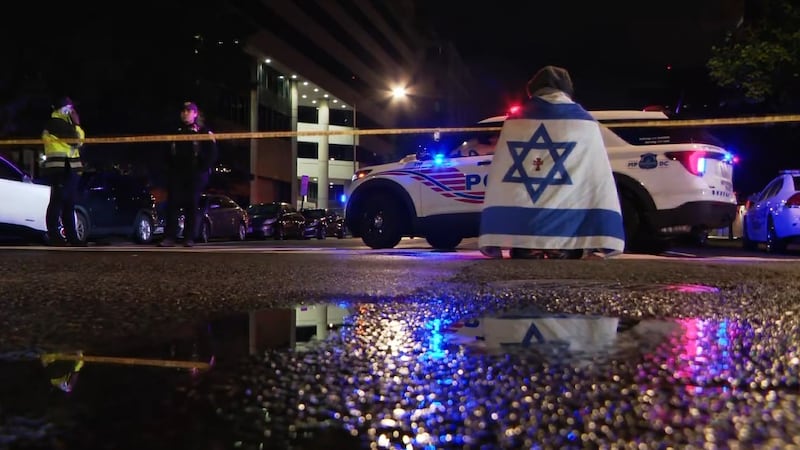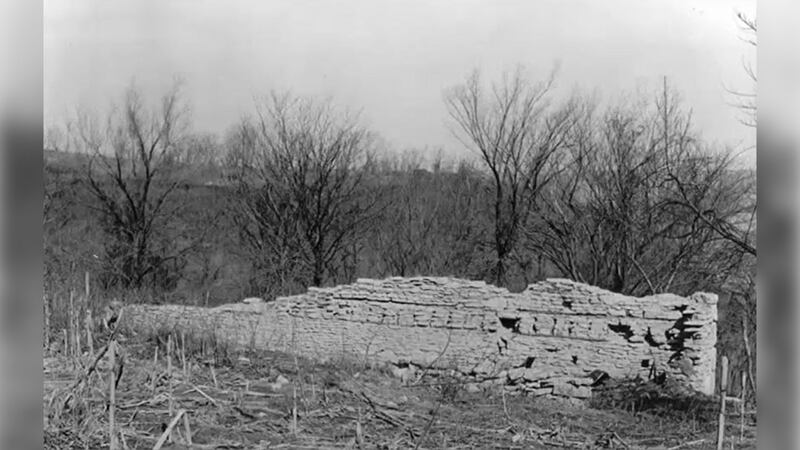Kansas City moves closer to approving 6-month plan for KCATA bus routes, fares, IRIS
KANSAS CITY, Mo. (KCTV) - On Tuesday, the City of Kansas City moved closer to approving a plan to try and address the financial issues facing the Kansas City Area Transportation Authority (KCATA).
The KCATA has said it has a $30 million budget shortfall this year.
Last week, Kansas City council approved nearly $78 million for KCATA.
At Tuesday’s Finance, Governance, and Public Safety Committee meeting, the council discussed an ordinance to provide $46 million to fully cover operations from May to October for KCATA, but there is a list of changes the City wants to see happen during that time.
The six-month plan includes:
- No reduction to service routes
- Steps to improve the financial structure of KCATA without major service reductions
- Reevaluate the IRIS Service
- Develop a fare system, allow riders who can pay to do so, and have other programs for those who can’t pay
- Seek partnerships with surrounding cities, employers, organizations, state and federal government
- Progress is to be reported to the City Council or a Committee every two months
- Audits by the City Auditor or a third-party auditor designated by the City to ensure funds are being used as contracted
“There is a long road ahead, we are committed to staying on the road with them,” said Kansas City, Missouri Mayor Pro Tem Ryana Parks-Shaw.
KCATA operates in seven counties. The City of Kansas City provides 93% of the istrative overhead for the service.
Kansas City Mayor Quinton Lucas said he wants to know where the budget gap came from.
“What is explaining all of that and it sure as heck isn’t better routes it isn’t faster and more reliable routes and timing, I’m not seeing where all of that is and I think that is something we want to have addressed before we are putting more money in,” said Lucas. “I think what you saw from City Council is standing up for poor and working-class bus riders, protecting our routes, but also make sure that we are doing the auditing and the ing work to see why KCATA has seen such a dramatic cost increase in recent years as compared to previous ones.”
Bus rides are currently free and adding the fare could take 60-90 days, but some feel this isn’t going to help.
“It is really tough on our communities at a time when we are seeing Medicaid get cut, we are seeing food stamps get cut, we are seeing poor working class people get attacked,” said Sunrise Movement volunteer and bus rider, Laela Zaidi.
Zaidi rides routes 11 and 24. She enjoys riding the bus and isn’t totally against the ordinance, but wants to see more leaders take responsibility for the issues in public transit.
At Tuesday’s meeting, dozens stood up in of Kansas City’s public transit service, some feel a regional transit system would help.
If KCATA were to cut routes, 175 out of 516 of the local Amalgamated Transit Union (ATU) would be affected.
“The six-month proposal that they are coming up with is just prolonging this,” said ATU 1287 Union President, Nicholas Miller.
“It improves their financial structure and requires them to live up to their promise of being a regional transit system as they seek regional partnerships, bringing additional funding from surrounding municipalities, businesses, state, and federal sources, reducing its dependency on Kansas City to be the main er of its 19 million dollar overhead year after year,” said Parks-Shaw.
Lucas said the plan could lead to cost-saving efforts, something he hopes KCATA can work on.
“It is let’s see what they’ve done, let’s see what we might be able to do what our revenues coming in have been to see where we might be able to find further ,” said Mayor Lucas.
City Council is expected to vote on this next Thursday.
After Tuesday’s meeting the KCATA’s Board of Commissioners Chair, Reginald Townsend provided a statement.
The Kansas City Area Transportation Authority (KCATA) Board of Commissioners is committed to enhancing the regional transit funding framework, improving service delivery, and promoting fiscal responsibility.
“Providing safe, efficient, and accessible transportation that s the economic vitality and mobility needs of our communities remains our primary focus,” stated Reginald Townsend, Chairman of the KCATA Board of Commissioners. “Although we have a strong ridership, we understand the need to make strategic adjustments to optimize the agency’s size. This will help us better control costs, improve operational efficiency, and elevate the quality of service we provide.”
We continuously assess transit routes, services, and performance metrics to align with the changing needs and expectations of our riders. Increasing community engagement and collecting is crucial for informing future transit planning and improvements. By leveraging innovative technologies and best practices in public transportation, KCATA aims to develop a resilient and adaptable “regional” transit system that effectively serves the Kansas City metropolitan area.
Through “regional” collaboration, we can establish a funding model that transcends city borders and is not dependent on individual local budgets, ensuring regional benefits while maintaining fiscal responsibility and excellence in service. A regional funding model is essential as it s specific core routes that connect multiple communities. This message emerged clearly in the media about how a city’s transit budget affects its resident’s ability to connect with opportunities in neighboring areas.
To safeguard the future of our transit system, we seek public and partnerships from all local, county, and state stakeholders. Investing in our transit infrastructure will provide significant benefits for the entire region, enhancing economic growth, improving mobility, and ensuring sustainable development.
Thank you for your continued and commitment to creating a better transit system for everyone.
Copyright 2025 KCTV. All rights reserved.














